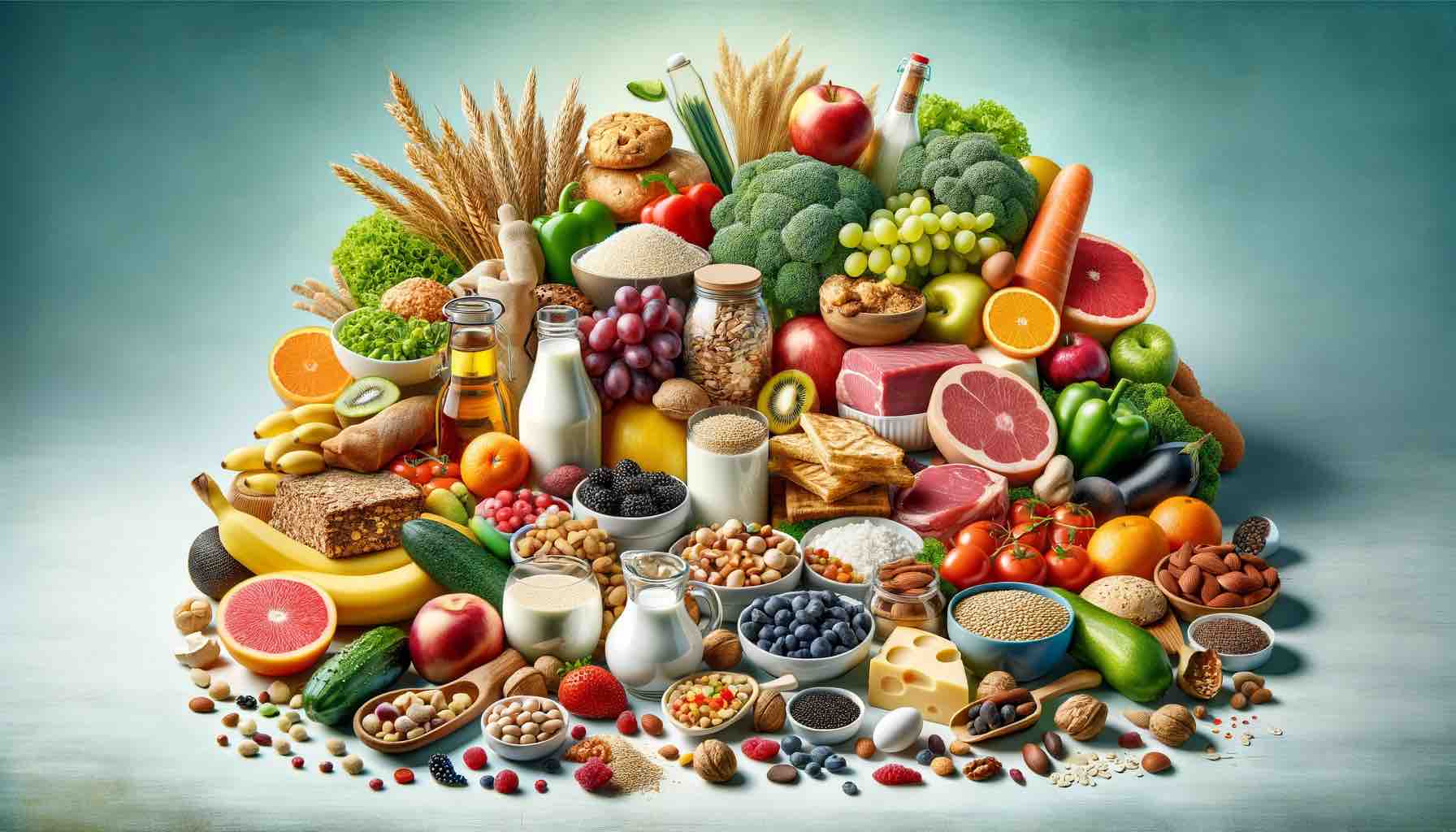
Diving into the world of nutrition, it’s essential to understand macronutrients: carbohydrates, proteins, and fats. These are the fundamental components that provide energy and support various bodily functions.
Carbohydrates: Your Body’s Primary Energy Source Carbohydrates are the primary energy source for your body. They are found in foods like bread, rice, fruits, and vegetables. Understanding the difference between simple and complex carbohydrates is key for managing energy levels and overall health.
Proteins: Building and Repairing Tissues Proteins are crucial for building muscle, repairing tissues, and producing enzymes and hormones. Sources include meat, fish, dairy, and plant-based options like legumes and nuts.
Fats: Essential for Health Fats are necessary for long-term energy, nutrient absorption, and protecting organs. It’s important to choose healthy fats, such as those found in avocados, nuts, and olive oil, over saturated and trans fats.
Balancing Macronutrients in Your Diet A balanced diet includes an appropriate mix of all three macronutrients. This balance can vary depending on individual health goals, lifestyle, and dietary preferences.
Tips for Managing Macronutrient Intake
- Understand Food Labels: Learn to read and interpret the nutritional content of foods.
- Portion Control: Be mindful of portion sizes to manage macronutrient intake.
- Choose Whole Foods: Opt for whole, unprocessed foods for better quality nutrients.
- Consult with a Nutritionist: If you’re unsure about your dietary needs, consulting a professional can provide personalized advice.
Join the #BackOnTrack Challenge For more detailed guides on nutrition and wellness, visit the BackOnTrack WeightLoss Challenge page. This challenge not only offers in-depth reading material but also encourages you to participate in a community-focused journey towards better health.
Remember, understanding macronutrients is just the beginning. Join the challenge to explore more about nutrition and how it impacts your health journey.
10 FAQs for “Basics of Macronutrients: Understanding Your Diet’s Building Blocks”
- What are the primary functions of carbohydrates in our diet? Carbohydrates are the main energy source for the body, essential for brain function, and play a role in intestinal health and waste elimination.
- Why is protein important for our health? Protein is crucial for building and repairing tissues, producing enzymes and hormones, and maintaining muscle mass and bone health.
- How do fats contribute to our overall health? Fats provide long-term energy, aid in nutrient absorption, support cell growth, and protect organs. They’re also essential for hormone production.
- What’s the difference between simple and complex carbohydrates? Simple carbohydrates are quickly digested and can spike blood sugar levels, while complex carbohydrates provide sustained energy and contain fiber, aiding in digestion and health.
- How can I balance macronutrients in my diet? Balancing macronutrients involves consuming a varied diet that includes a mix of carbohydrates, proteins, and fats, tailored to your individual health goals and needs.
- Are all fats healthy? Not all fats are created equal. Unsaturated fats, like those in nuts and olive oil, are beneficial, while saturated and trans fats should be limited.
- What are some good sources of protein for vegetarians? Legumes, nuts, seeds, tofu, and dairy products are excellent protein sources for vegetarians.
- How can I ensure I’m getting the right amount of each macronutrient? Reading food labels, portion control, and consulting with a nutritionist can help in managing the right balance of macronutrients.
- Is it possible to have too much of a good macronutrient? Yes, overconsumption of any macronutrient can lead to health issues, such as weight gain or nutrient imbalances.
- How does understanding macronutrients contribute to weight loss? Knowing about macronutrients can help you make informed dietary choices, aiding in creating a balanced diet that supports weight loss and overall health.
Blog Tags for the Post
macronutrients, carbohydrates, proteins, fats, balanced diet, nutrition basics, healthy eating, diet planning, food choices, nutrient balance








